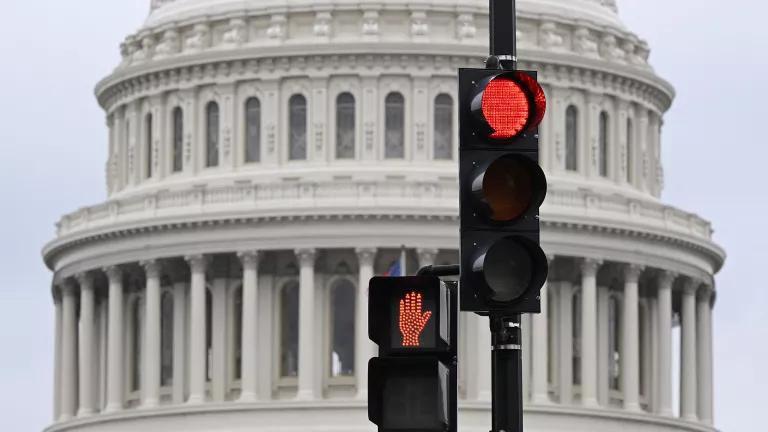Let's Celebrate: Governor Brown Signs California's Important New Law on Antibiotic Use in Meat Production
Today, I'm celebrating. I'm celebrating because Governor Brown signed SB 27 (Hill), a big step forward on addressing the misuse and overuse of antibiotics in meat production in the US. With his signature, California becomes the first state in the nation to take this on and make significant progress beyond the federal Food and Drug Administration's (FDA) feints at addressing the problem. We've fought for many years to get the FDA to take genuine action on this issue, but the FDA has basically given the issue lip service and failed to take meaningful action. Now, California has delivered real progress.
As I have pointed out before, 70% of medically important antibiotics (those important for human medicine) sold in the US are for animal use. The misuse and overuse of antibiotics in meat production--commonly used on animals that are not sick, a type of use that is rare in human medicine--is contributing to a public health crisis of antibiotic resistance. Antibiotics that we all rely on to treat illnesses should not be put at risk to produce meat that is a few cents cheaper.
SB 27 gives me and anyone who cares about keeping antibiotics working good reason to rejoice. It takes a number of steps to curb antibiotic misuse in livestock, including a couple of key provisions:
- In addition to prohibiting antibiotic use solely to speed up animal growth, the law prohibits the use of antibiotics in a regular pattern. This restriction applies to use for growth promotion or for for so-called "disease prevention," thus going beyond federal policy.
- The restriction does not apply when antibiotics are used to treat sick animals or to control the outbreak of disease.
- Even for irregular prophylactic use, the law requires the presence of an elevated risk before medically important antibiotics can be used.
- These restrictions are combined with veterinary oversight.
- The law requires the California Department of Food and Agriculture (CDFA) to develop a monitoring program, to gather information on livestock antibiotic use sales and usage and clarifies that the agency has the authority to collect veterinary feed directives (prescriptions for feed antibiotics) to that end.
- Finally, the law directs CDFA to develop antibiotic stewardship guidelines and best management practices for the use of antibiotics.
In particular, banning the regular use of antibiotics and requiring the collection of information on livestock use of antibiotics represent significant steps beyond the flawed and inadequate federal efforts. The federal government does not collect information on actual livestock antibiotic use, nor has it put forward any concrete proposals to collect such data. And the FDA's policy allows the regular use of antibiotics on animals that are not sick if the use is claimed to be for "preventing disease"--a practice that is incredibly shortsighted, the equivalent of feeding our kids antibiotics every day before sending them off to school because they might get sick there, when they can wash their hands instead.
SB 27's changes come as large chicken producers both here in California and elsewhere, such as Foster Farms and Perdue Farms, have announced plans to discontinue the use of medically important antibiotics except for treatment. The Governor noted this trend in his signature statement while urging producers of other livestock species to follow that lead in eliminating the subtherapeutic (or low dose, non-treatment) use of antibiotics. The progress in the US chicken sector and the successful reduction of livestock antibiotic use in other countries show the path forward. However, there has been limited progress in the US in other livestock species such as turkeys, pigs, and cows. This is one of the reasons why government action--like SB 27--is so important.
NRDC and our partners (CALPIRG, Environmental Working Group, Food and Water Watch, Center for Food Safety, and others) have been working hard on this issue for years, and it is terrific to have Governor Brown on our side on this critical public health issue and to see him staying the course. We thank Senator Hill for carrying SB 27 through the legislature and we thank Governor Brown for his leadership in signing it. We look forward to working with Governor Brown's administration on the implementation of this landmark law.
We are pleased that the final bill passed without significant opposition, and we hope that other states and the federal government will follow California's lead.




